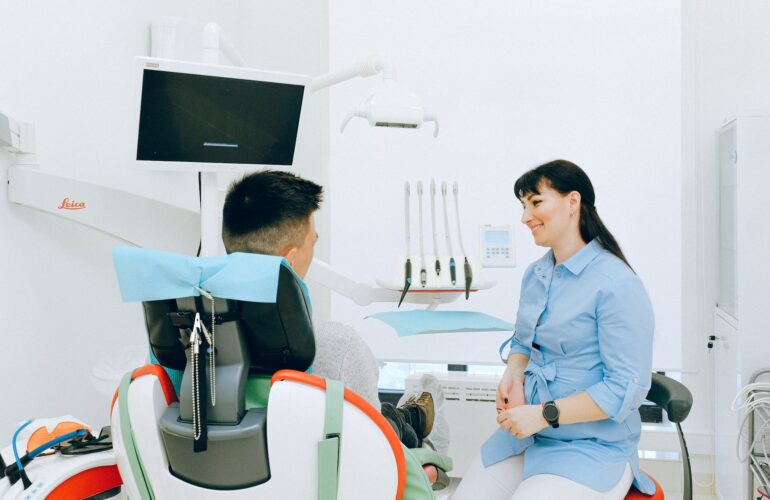Dental implants are generally not recommended for children, especially for those whose jawbones and teeth are still developing. Dental implant surgery involves placing a metal post (usually made of titanium) into the jawbone, and then attaching an artificial tooth (crown) to the post.
Here are some reasons why dental implants may not be safe or appropriate for children:
- Jawbone Growth: Children’s jaws and facial bones continue to grow and develop until they reach adulthood. Placing dental implants in a growing jaw can interfere with natural growth patterns. This can potentially lead to problems with the alignment of surrounding teeth and facial structures.
- Tooth Development: Children typically have a mix of baby teeth and adult teeth as they grow. Implants are meant to replace missing adult teeth. Hence it is usually best to wait until the child has fully developed their adult set of teeth before considering dental implants.
- Oral Health Maintenance: Children may not have the same level of oral hygiene discipline as adults, which is crucial for the long-term success of dental implants. Implants require proper care to prevent infections and complications.
- General Anesthesia: Dental implant surgery often requires anesthesia or sedation, which carries some risks. Children may be more susceptible to these risks, and the decision to use anesthesia should be carefully considered.
If your child has lost a tooth due to trauma or other reasons, it’s essential to consult with a pediatric dentist or an orthodontist who specializes in pediatric dental care. They can evaluate the specific circumstances and determine the best course of action. In many cases, dentists may recommend a removable partial denture or other temporary solutions until your child is older and their jaw and teeth have fully matured.
Ultimately, the safety and appropriateness of dental implants for a child depend on individual circumstances and should be discussed with a dental professional who can provide personalized advice and recommendations.




